Most Popular
-
1
Ador CEO denies allegations, accuses Hybe of mistreating NewJeans

-
2
10-man S. Korea lose to Indonesia to miss out on Paris Olympic football qualification

-
3
Hybe-Ador feud should have limited effect on Hybe's overall performance: analysts

-
4
Second Gimpo civil servant found dead, after apologizing for not finishing work

-
5
DP leader says he will meet Yoon without conditions

-
6
[Hello India] Hyundai Motor vows to boost 'clean mobility' in India
![[Hello India] Hyundai Motor vows to boost 'clean mobility' in India](//res.heraldm.com/phpwas/restmb_idxmake.php?idx=644&simg=/content/image/2024/04/25/20240425050672_0.jpg&u=)
-
7
Seoul to promote luxurious side of the city

-
8
First-ever meeting of president, opposition chief set to finally happen

-
9
NewJeans' singles, Japanese debut to proceed as planned, despite Hybe-Ador feud

-
10
Experts raise concerns about Japan putting pressure on Naver over Line

-
[LLG] Why this tutor teaches for free
DAEGU-- Han Si-nae, 36, is no ordinary tutor. Her students, totaling 10 and ranging from primary to high school, come to her house after school for supplementary math lessons. After challenging their brains with math quizzes, the students fill their stomachs with an ample amount of snacks and dinner whipped up by Han. The best part? None of them pay a single penny. So, is Han an altruistic benefactor for future generations with deep pockets? Listening to her speak for a brief moment, it becomes
April 24, 2024
![[LLG] Why this tutor teaches for free](//res.heraldm.com/phpwas/restmb_idxmake.php?idx=652&simg=/content/image/2024/04/24/20240424050572_0.jpg&u=)
-
[Korea Quiz] Abusive imbalances of power
Find the answer at the bottom. In relationships or social situations where power imbalances lead to problematic dynamics, the term "gapjil" is used to describe unjust and abusive behavior by someone who thinks they are in a relatively superior position. The term originates from Korean legal terminology, where "gap" signifies the more powerful or superior party in a contract, while "eul" denotes the relatively less powerful or inferior party. The suffix "jil&q
April 24, 2024
![[Korea Quiz] Abusive imbalances of power](//res.heraldm.com/phpwas/restmb_idxmake.php?idx=652&simg=/content/image/2024/04/24/20240424050192_0.jpg&u=)
-
[Pressure points] Leggings in public: Fashion statement or social faux pas?
The question of whether leggings are suitable for everyday public wear has been a globally debated issue, transcending national borders. Since the "athleisure" trend took off around 2016, merging athletic wear with everyday fashion, particularly gaining traction among young Koreans, the appropriateness of wearing leggings outside the gym has been a recurring topic of debate in various online forums here. On one side are those who perceive leggings as a provocative garment that clashe
April 23, 2024
![[Pressure points] Leggings in public: Fashion statement or social faux pas?](//res.heraldm.com/phpwas/restmb_idxmake.php?idx=652&simg=/content/image/2024/04/23/20240423050669_0.jpg&u=)
-
[AtoZ into Korean mind] Humor in Korea: Navigating the line between what's funny and not
Yoon Jin-hee, 37, describes herself as a bubbly and funny personality, always cracking jokes first when around friends. But at work, she seldom reveals her witty side. "At work, only bosses make jokes. I've never seen a subordinate make a joke to their boss," said Yoon, who works for a government agency. “Male superiors mostly make ‘ajae’ jokes, which are hardly ever amusing,” she said. The term, based on “ajae,” a word for middle-aged men, is r
April 22, 2024
![[AtoZ into Korean mind] Humor in Korea: Navigating the line between what's funny and not](//res.heraldm.com/phpwas/restmb_idxmake.php?idx=652&simg=/content/image/2024/04/22/20240422050642_0.jpg&u=)
-
[Weekender] Why aren't K-pop stars cashing in on cosmetics?
K-beauty is trending globally. Many Korean celebrities, particularly K-pop stars, command vast, devoted fan bases, influencing fashion and beauty trends. Combine the two and one might naturally assume there would be numerous cosmetic brands launched by Korean stars, similar to Rihanna’s Fenty Beauty, Kylie Jenner's Kylie Cosmetics or Selena Gomez's Rare Beauty in the US. The reality, however, is quite different. Korean stars might be the faces of top beauty brands, but they rar
April 20, 2024
![[Weekender] Why aren't K-pop stars cashing in on cosmetics?](//res.heraldm.com/phpwas/restmb_idxmake.php?idx=652&simg=/content/image/2024/04/18/20240418050897_0.jpg&u=)
-
[EYE] 'Dogs cherish time with human companions, visually impaired or not'
It was a serendipitous encounter on the subway back in the mid-1990s when young veterinary college student Park Tae-jin first laid eyes on an assistance dog accompanying a passenger he assumed was blind. "Having never witnessed such a scene before, I felt compelled to follow the person and the dog," said Park, now general director of Samsung Guide Dog. At that time, there were only around 10 guide dogs in South Korea, he explained. This seemingly coincidental event helped set his car
April 20, 2024
![[EYE] 'Dogs cherish time with human companions, visually impaired or not'](//res.heraldm.com/phpwas/restmb_idxmake.php?idx=652&simg=/content/image/2024/04/18/20240418050893_0.jpg&u=)
-
[Korea Quiz] National flower
Find the answer at the bottom. While South Korea lacks a specific law officially designating a national flower, the rose of Sharon, or "mugunghwa" in Korean, is widely recognized as such. The Ministry of the Interior and Safety introduces the flower alongside the national flag, anthem and seal as national symbols. Blooming throughout the summer for approximately 100 days from July to September, the flower is known for its resilience to diseases. Its Korean name, which translates
April 19, 2024
![[Korea Quiz] National flower](//res.heraldm.com/phpwas/restmb_idxmake.php?idx=652&simg=/content/image/2024/04/19/20240419050136_0.jpg&u=)
-
Luck or curse? Korean ‘yeot’ taffy's contrasting symbolism
Fading into history are scenes of street vendors hawking the candy “yeot,” with rhythmic snips of blunt scissors. Despite being cherished in Korea for centuries, particularly among commoners due to its accessibility, the taffy is no longer the most sought-after candy in the nation, as only a handful of businesses are still dedicated to the craft of making it. For modern sweet enthusiasts, it has fallen out of favor, often perceived as too sticky and lacking the more delicate, soft
April 16, 2024
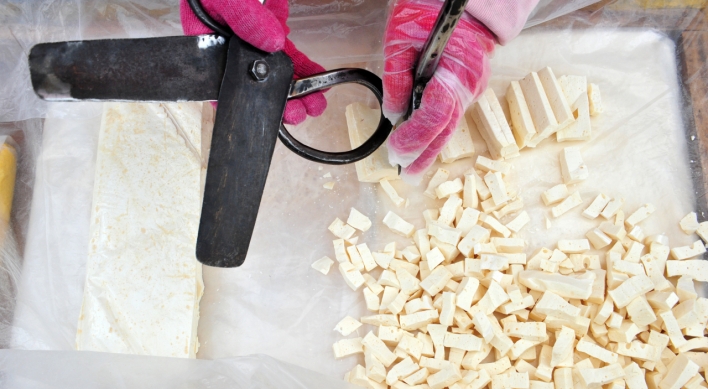
-
[LLG] Everything tastes better with 'Butter'
A few years ago, Julia Bellaflores' life started to fall apart. Bellaflores, a teacher in Texas, had been doing her classes online during the COVID-19 pandemic. When asked to return to the classroom in person, she decided not to, out of concern for her mother, whom she lived with at the time, but who has now passed away. Bellaflores was too concerned about the health risks her return to the school could pose to her ailing mother. Her teaching license was suspended. On top of that, her hus
April 10, 2024
![[LLG] Everything tastes better with 'Butter'](//res.heraldm.com/phpwas/restmb_idxmake.php?idx=652&simg=/content/image/2024/04/10/20240410050186_0.jpg&u=)
-
[Pressure points] Wearing hair rollers in public: Breach of social etiquette?
In South Korea these days, it is not unusual to come across young women styling their bangs with hair rollers outside of their homes or hair salons, in offices, subways, buses or classrooms. While some onlookers deem this style inappropriate for public settings, one might even wonder whether it has become a fashion statement among younger women in Korea, transcending its original purpose of achieving voluminous bangs. Indeed, there have been numerous online discussions about whether donning th
April 9, 2024
![[Pressure points] Wearing hair rollers in public: Breach of social etiquette?](//res.heraldm.com/phpwas/restmb_idxmake.php?idx=652&simg=/content/image/2024/04/09/20240409050562_0.jpg&u=)
-
[Korea Quiz] Korean phone etiquette
Find the answer at the bottom. Phone calls can be tricky without the benefit of facial expressions to convey tone or intent. To avoid misunderstandings in Korea, knowing about phone etiquette is key. The greeting “yeobosaeyo” is equivalent to “hello,” and is used by both the caller and the receiver, but it is typically used only during phone conversations, not in other contexts. However, as it has become common to identify a caller through caller ID, many Koreans no
April 8, 2024
![[Korea Quiz] Korean phone etiquette](//res.heraldm.com/phpwas/restmb_idxmake.php?idx=652&simg=/content/image/2024/04/08/20240408050684_0.jpg&u=)
-
[AtoZ into Korean mind] Battling 'gapjil': The quest to tame the tyrants among us
In many social relationships, whether personal or at work, power dynamics can create problematic imbalances. There are many words to describe them -- unjust, abusive, coercive, exploitative — but in Korean, there's a term that encapsulates them all: "gapjil." Originating from contractual terminology, the term came to be used for abuses of power in the workplace. Its use has expanded to other social relations, when individuals who, rightly or wrongly, perceive themselves to b
April 7, 2024
![[AtoZ into Korean mind] Battling 'gapjil': The quest to tame the tyrants among us](//res.heraldm.com/phpwas/restmb_idxmake.php?idx=652&simg=/content/image/2024/04/07/20240407050088_0.jpg&u=)
-
[Korea Quiz] Smelly bean blocks
Find the answer at the bottom. Meju are bricks of dried, fermented soybeans that are used to make three of Korea’s most essential condiments -- doenjang (bean paste), ganjang (soy sauce) and gochujang (red pepper paste). Traditionally, when families made their own condiments, it was common to see several blocks of cooked, mashed beans hanging up to dry and ferment. During winter, the typical jang-making season, Korean homes would be filled with the unique, pungent scent of meju fermenti
April 4, 2024
![[Korea Quiz] Smelly bean blocks](//res.heraldm.com/phpwas/restmb_idxmake.php?idx=652&simg=/content/image/2024/04/04/20240404050266_0.jpg&u=)
-
Classic spring K-pop songs: Voices of the young, in-love or melancholic
As spring approaches, many Koreans eagerly tune in to timeless spring-themed songs -- joyful yet poignant melodies that signal the arrival of what is thought of here as the season of love. These songs consistently occupy top positions on national record charts every spring, reflecting Koreans’ enduring affection for these tracks, as the season adorns the nation with colorful blossoms and new leaves. Yet, of four popular songs about spring, the themes they deal with are divided between po
April 2, 2024
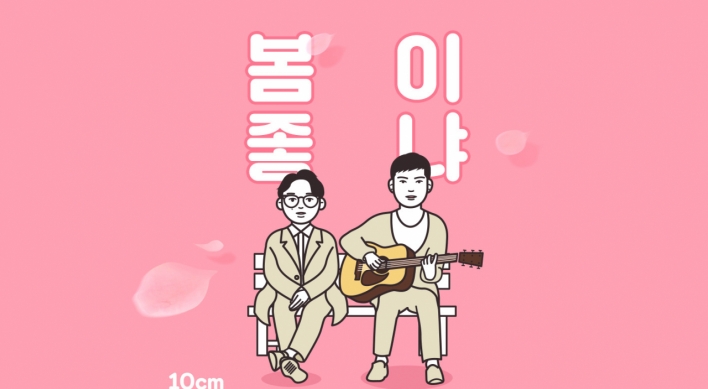
-
The Korean fir: A rising star abroad, fading fast at home
In November last year, New York-based Good Housekeeping magazine recommended the 20 best types of Christmas trees for the upcoming season. Among them was a relative newcomer: the Korean fir, also known as “gusang namu (tree)” in Korean. It was described as a “new kid on the block” by the magazine, referring to its emerging presence, “popping up,” thanks to its distinctive shape and color. Ironically, however, this indigenous Korean tree is not commonly used
April 2, 2024
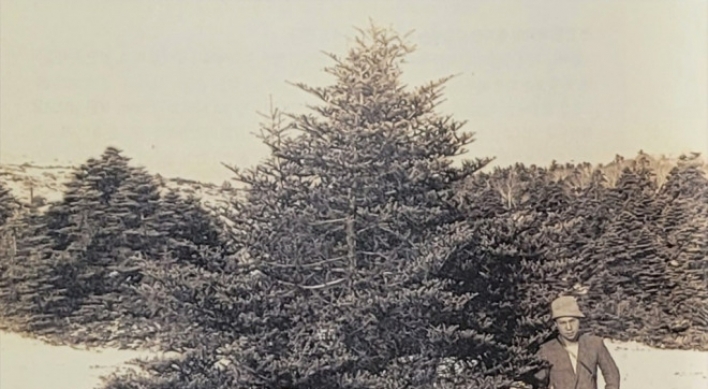
-
How Lockheed Martin, CNN and Yale became fashion brands in Korea
On Seoul’s streets today, seeing someone clad in a CNN hoodie, Kodak pants, Yale socks, a Discovery jacket, a National Geographic backpack and a BBC Earth baseball cap may not seem out of the ordinary. The presence of logos from global non-fashion brands, spanning academia, media and sports, in Korean everyday wear seems to be only growing, now including unexpected entrants like arms manufacturer Lockheed Martin. As for Yale, the US university now ranks third among the top 100 fashion br
March 31, 2024
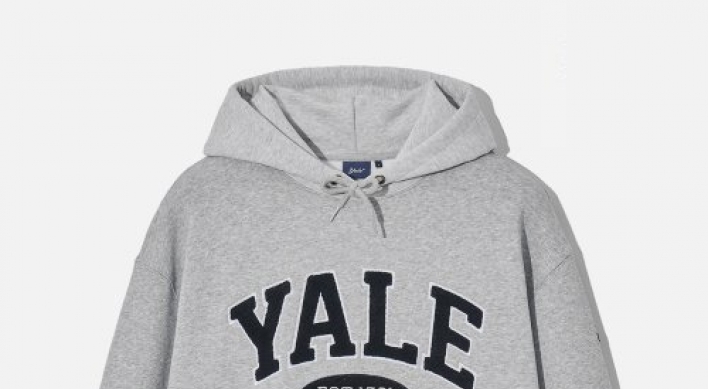
-
[Korea Quiz] Resurgence of Korean traditional desserts
Find the answer at the bottom. Retro has become the latest dessert fad in South Korea. Dubbed “halmaenial,” the trend has seen millennials embrace the tastes and preferences traditionally associated with their grandparents' generation. Halmaenial is a portmanteau of "halmae," the Korean word for granny, and "millennial." Enjoying renewed popularity are traditional Korean snacks yanggaeng, yakgwa and yugwa. Recently, yanggaeng, or sweet red bean jelly, has s
March 27, 2024
![[Korea Quiz] Resurgence of Korean traditional desserts](//res.heraldm.com/phpwas/restmb_idxmake.php?idx=652&simg=/content/image/2024/03/27/20240327050901_0.jpg&u=20240328131843)
-
Time-old Korean hoax involves a rock and a dozen Americans
Before Donald Trump popularized the term “fake news,” a recurring April Fool’s Day hoax had already made the concept familiar to many Koreans. This joke -- coming back almost every April 1, yet still managing to deceive some -- happens to feature a group of American tourists on a tour of the scenic area of Seoraksan in Gangwon Province. A version of the fabricated news article, easily found with a basic search, has the title "11 American tourists booked for toppling Seor
March 27, 2024
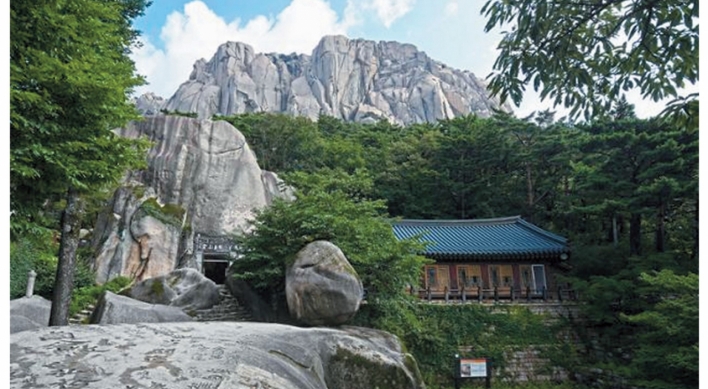
-
Decoding popular lingo for deeper insight into Korean college culture
As spring heralds the arrival of a new semester, young college students, first-years in particular, brim with eager anticipation for a fresh campus experience. Fluency in the terminology of college life here unlocks a deeper understanding of the local campus culture, enriching every aspect of the student experience. Here provided are explanations of Korean college culture and its related terms to assist undergraduates and others on their journey. 'Hakbeon' to navigate campus co
March 26, 2024
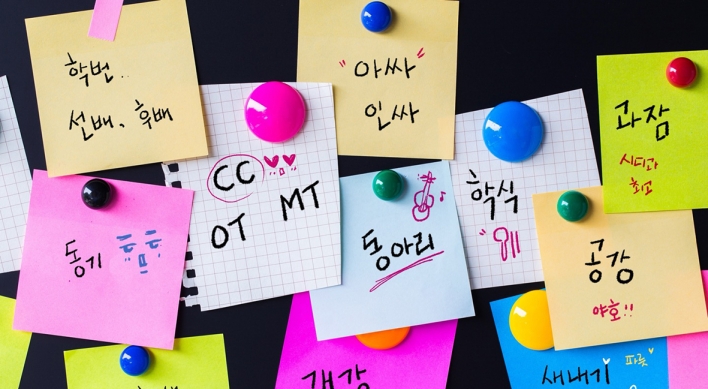
-
[AtoZ into Korean mind] Fatphobia pervasive in Korea
"Your face looks good." When Justin Ku first heard this remark from one of his relatives here, he took it as a compliment. He later discovered that the phrase is more often used by Koreans to point out when you've gained weight. "I was shocked by how casually they said it," said Ku, 34, who had emigrated to the US when he was young and moved back to Korea as an adult. Ku is not alone in his surprise at the prevalence of body-shaming embedded in the fatphobic social atmosphere
March 24, 2024
![[AtoZ into Korean mind] Fatphobia pervasive in Korea](//res.heraldm.com/phpwas/restmb_idxmake.php?idx=652&simg=/content/image/2024/03/24/20240324050169_0.jpg&u=20240324172516)







![[Hello India] Hyundai Motor vows to boost 'clean mobility' in India](http://res.heraldm.com/phpwas/restmb_idxmake.php?idx=644&simg=/content/image/2024/04/25/20240425050672_0.jpg&u=)





![[LLG] Why this tutor teaches for free](http://res.heraldm.com/phpwas/restmb_idxmake.php?idx=652&simg=/content/image/2024/04/24/20240424050572_0.jpg&u=)
![[Korea Quiz] Abusive imbalances of power](http://res.heraldm.com/phpwas/restmb_idxmake.php?idx=652&simg=/content/image/2024/04/24/20240424050192_0.jpg&u=)
![[Pressure points] Leggings in public: Fashion statement or social faux pas?](http://res.heraldm.com/phpwas/restmb_idxmake.php?idx=652&simg=/content/image/2024/04/23/20240423050669_0.jpg&u=)
![[AtoZ into Korean mind] Humor in Korea: Navigating the line between what's funny and not](http://res.heraldm.com/phpwas/restmb_idxmake.php?idx=652&simg=/content/image/2024/04/22/20240422050642_0.jpg&u=)
![[Weekender] Why aren't K-pop stars cashing in on cosmetics?](http://res.heraldm.com/phpwas/restmb_idxmake.php?idx=652&simg=/content/image/2024/04/18/20240418050897_0.jpg&u=)
![[EYE] 'Dogs cherish time with human companions, visually impaired or not'](http://res.heraldm.com/phpwas/restmb_idxmake.php?idx=652&simg=/content/image/2024/04/18/20240418050893_0.jpg&u=)
![[Korea Quiz] National flower](http://res.heraldm.com/phpwas/restmb_idxmake.php?idx=652&simg=/content/image/2024/04/19/20240419050136_0.jpg&u=)

![[LLG] Everything tastes better with 'Butter'](http://res.heraldm.com/phpwas/restmb_idxmake.php?idx=652&simg=/content/image/2024/04/10/20240410050186_0.jpg&u=)
![[Pressure points] Wearing hair rollers in public: Breach of social etiquette?](http://res.heraldm.com/phpwas/restmb_idxmake.php?idx=652&simg=/content/image/2024/04/09/20240409050562_0.jpg&u=)
![[Korea Quiz] Korean phone etiquette](http://res.heraldm.com/phpwas/restmb_idxmake.php?idx=652&simg=/content/image/2024/04/08/20240408050684_0.jpg&u=)
![[AtoZ into Korean mind] Battling 'gapjil': The quest to tame the tyrants among us](http://res.heraldm.com/phpwas/restmb_idxmake.php?idx=652&simg=/content/image/2024/04/07/20240407050088_0.jpg&u=)
![[Korea Quiz] Smelly bean blocks](http://res.heraldm.com/phpwas/restmb_idxmake.php?idx=652&simg=/content/image/2024/04/04/20240404050266_0.jpg&u=)



![[Korea Quiz] Resurgence of Korean traditional desserts](http://res.heraldm.com/phpwas/restmb_idxmake.php?idx=652&simg=/content/image/2024/03/27/20240327050901_0.jpg&u=20240328131843)


![[AtoZ into Korean mind] Fatphobia pervasive in Korea](http://res.heraldm.com/phpwas/restmb_idxmake.php?idx=652&simg=/content/image/2024/03/24/20240324050169_0.jpg&u=20240324172516)